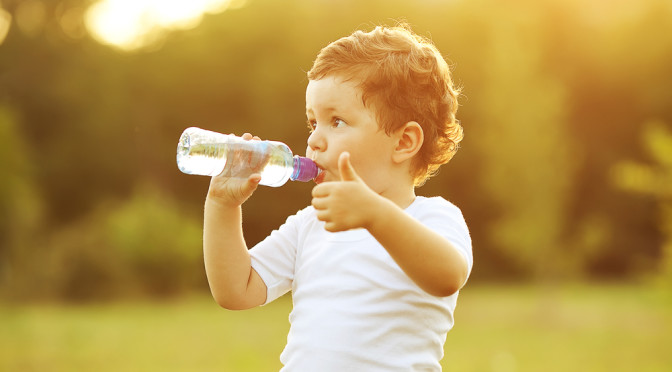
Human body is roughly 70 to 75 percent water. Water keeps the homeostasis balance and it keeps the activities inside the body going. These facts mean that, having insufficient amount of water or medically termed as fluids, inside the body could disturb the internal normal processes that might cause complications to the minor and major organs in the human body like the liver, lungs, heart and the brain.
In this article I want to focus on the alterations that might happen to the brain with fluid insufficiency and how would it affect one’s performance at school that apparently will reflect on the academic performance of a person. Allow me to present to you the comprehensive details of the important roles of drinking water inside the body relative to the intellectual capacity of a human being.
According to the studies conducted by medical experts around the globe, there are major factors that contribute to the human intelligence which includes: genes and proper nutrition to name some. I want to relate these two factors to the role of water inside the body in relation to getting good grades at school.
Let me start from the blood. Blood transports all the nutrients inside the body and holds a very important role in oxygenating blood. Each organ inside the body demands a certain quantity of blood in order to function properly. Now, the role of the water is to facilitate the smooth movement of the blood and to not make it sticky. Now, if there is insufficiency of the fluid intake, the distribution of the blood to the specific organs, including the brain, will be compromised. Thus, the brain performance will not be maximized and it will obviously affect the performance of a person at school when it comes to comprehension, alertness and cohesiveness.
Normally, the body needs at least 8 glasses of water every day which is approximately, 2 liters every day. However, you might need to increase your fluid intake more than the required if your activities are also increasing. You have to conserve the normal amount of water inside the body. Example, if you have been sweating and urinating more than the usual, you should mind adding your water consumption to avoid insufficiency. The activities I am referring include the brain activities, like when you are heavily studying and analyzing things and concepts at school, you must re-hydrate too.
The misconception of fluid intake is that, it is not necessarily water, as long as you are drinking some liquids, it is considered fluid intake. Well, technically, it is correct but functionally and medically, the only fluid that is counted is water. So any fluids consumed aside from water are not counted to the required fluid intake daily. It means that, coffee, tea, sodas and the likes are not counted. Only water.
There are recommended hours when to drink water and are supported by research and studies. In order to make sure that you get the recommended amount of water in the body, you can follow this schedule:
1 glass – upon waking up
1 glass – before going to the shower
1 glass – after shower
1 glass – after breakfast
1 glass – after lunch
1 glass – after dinner
1 glass – before going to bed
1 glass or more – distributed in the entire day
Please take note that the average amount of water in one glass, in unit (ml) is 250 ml or a quarter of a liter.
Generally, yes. But, it is not the sole basis to have good grades. You also have to help yourself. Eat healthy food, get enough sleep so that everything will complement to one another’s role inside the body. The logic is, regardless of how adequate your water intake is, if the nutrients that the blood carries are insufficient, and the energy from getting enough sleep is not enough; it would still defeat the purpose.
Featured Image: Child Teaching